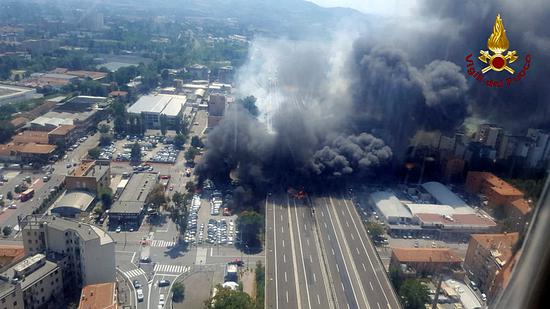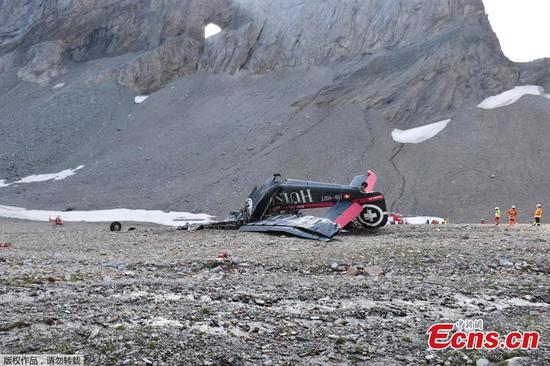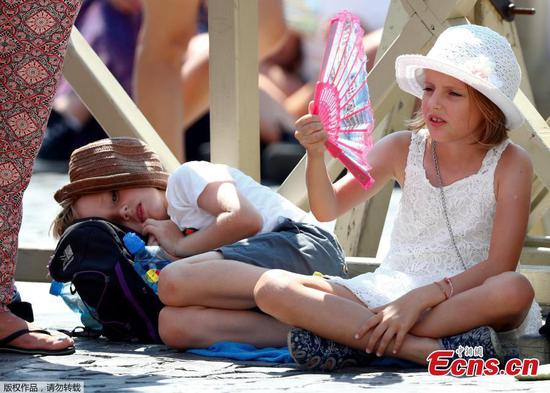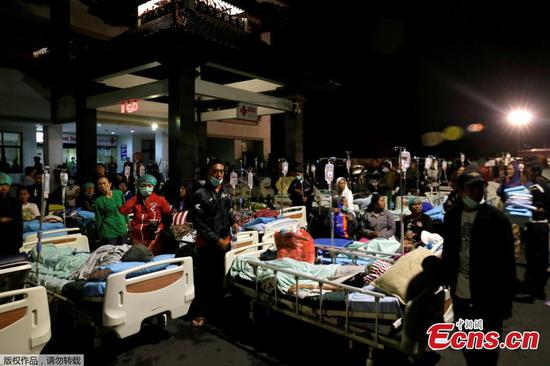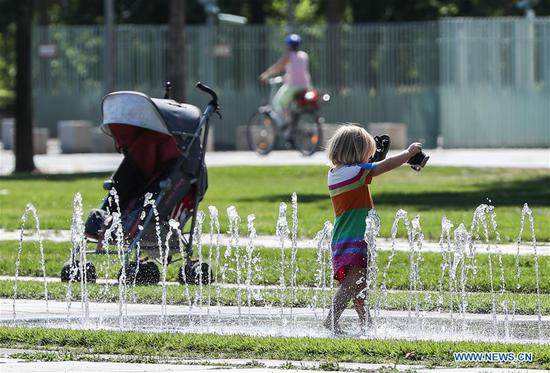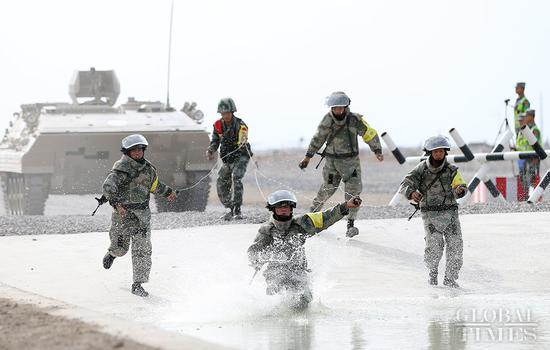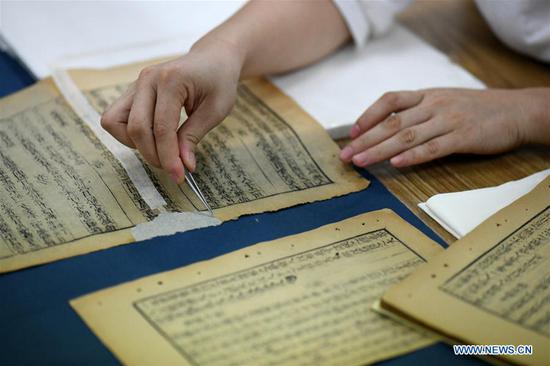Searching for evidence
"The thing I'm most afraid of now is that they will stop searching. I am afraid I will not be able to see the result that I've been waiting my whole life for. I do not want to leave this earth with regret and doubt, so I will spend the rest of my life promoting the search for MH370 and the incident investigation," said Jiang, whose mother was on the plane.
This former sales director of a State-owned enterprise quit his lucrative job and centers his life on the search for the missing flight MH370. Supported by his telecommunications background, he taught himself technical information surrounding the plane crash and read the English safety manual of the Boeing aircraft.
After the report was released to Malaysian families four days earlier on July 30, Jiang downloaded the English version of the report and read it carefully all night. Due to the language barrier, he often stayed up until 2 or 3 o'clock in the morning, struggling to get through a few pages.
"It's hard to understand, but I need to, because there has been too little official information available to families over the past four years," he told the Global Times.
On December 3, 2016, he and several families from China, France and Malaysia scoured the east African coast for possible wreckage when they heard wreckage was showing up in the area from the news. Five days later, they found what appeared to be a piece of debris from MH370 on a beach in Madagascar, which gives them hope they will unlock the mystery.
His actions were denounced by some other families, because it was an act of "hurt and betrayal that acknowledged their loved ones have died."
"Many families believe that no news is good news, because their beloved ones may still be alive," said Jiang.
The piece of debris was later dismissed by the authorities as "suspected debris."
In the endless waiting and chaos, Jiang suffered auditory hallucinations, insomnia, low appetite, and was diagnosed with "traumatic stress disorder." He had sometimes fallen into hallucinations, such as hearing his mother calling him home for dinner.
This 45-year-old father hid his sadness and vulnerability when his daughter asked where her grandmother was.
"As long as the concrete evidence is given, I can accept any result," he said. He has been to Malaysia more than a dozen times, either to attend private commemorations, or more often to ask the authorities for updates and responses. "It has happened, and you can't escape your fate. But you can fight against it. Never give up," he said.
Jiang, like many other Chinese families, sees more hope in Malaysia's new administration's emphasis on resolving the MH370 incident. "[The ruling] Pakatan Harapan [political party] often sends officials to our memorial events to give family members some comfort."
He can never deny the financial pressure on his family after leaving his job and choosing to be a full-time researcher and advocate. "But it is more cruel if you imagine how arduous it is for those from rural areas who lost their only child," said Jiang.
He felt deeply bitter after seeing that two relatives huddled in one bed to save money in a hostel after attending the meeting with Malaysia representatives in Beijing.
In 2015, most Chinese families of the victims declined settlement offers of 2.50 million yuan ($366,000) per victim, feeling that accepting the money would surrender their rights to hold those responsible for the accident accountable.
"The financially stressed families never hesitate to pay thousands of yuan to fly to Malaysia to 'ask for clarification' about the status of their next-of-kin. They may never be able to make 2.5 million yuan in their whole lives, but why did they refuse it?" Jiang asked. The answer is that the families want the search to continue more than they want the money.
Some families who were struggling on the edge of poverty could not afford to keep fighting for a definitive answer. Many chose to accept compensation and started a new life. Those families were often slammed by others for being "coldblooded" or "seeing only money."












